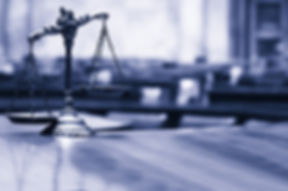Lawsuit Against Athletic Trainer

On March 21, 2017, in Williams v. Athletico, et. al., the First District Appellate Court held that a 2-622 report was required in a lawsuit against a licensed athletic trainer. The requirements of 735 ILCS 5/2-622, were implicated because the complaint alleged that the athletic trainer failed to assess and evaluate a concussion sustained by a student athletic during a high school football game.
Williams follows just a handful of other cases that have expanded the application of section 2-622 beyond the traditional doctor, nurse and hospital scenario. Williams confirms that healing art malpractice is not limited to merely doctors and nurses but includes other healing arts licensed professions which treat medical ailments and injuries. In Williams, the parents of a disabled student athlete brought a lawsuit against a licensed athletic trainer and two athletic training service providers alleging that defendants were negligent for failing to assess the student athlete for symptoms of head trauma during a high school football game. The complaint alleged ordinary negligence and defendants moved to dismiss on the basis that plaintiffs failed to attach a certificate from a health care professional as required by section 2-622 of the Code of Civil Procedure. The trial court denied the motions to dismiss but certified three questions which the First District Appellate Court agreed to consider. The Court analyzed the case under a three factor test: (1) whether the standard of care involves procedures not within the grasp of the ordinary lay juror, (2) whether the activity is inherently one of medical judgment, and (3) a consideration of the type of evidence that will be necessary for plaintiffs to prove their case, (i.e. will they need medical expert testimony). The Appellate Court answered the first two factors in the affirmative and with respect to the third commented that it weighs in favor of finding that the complaint sounds in healing art malpractice rather than ordinary negligence.
The Appellate Court also determined that since a licensed athletic trainer is not identified in the plain language of 2-622 as one of the professions which requires the author to be from the same school of medicine, that the author must be a medical doctor.
Disclaimer: The following is for informational purposes only. No statement, opinion or commentary is intended to provide legal advice to any specific person, organization or entity. Only a written attorney-client agreement will create an attorney-client relationship. Please contact Michael C. Holy or Carl M. Schultz to discuss all potential legal matters.

